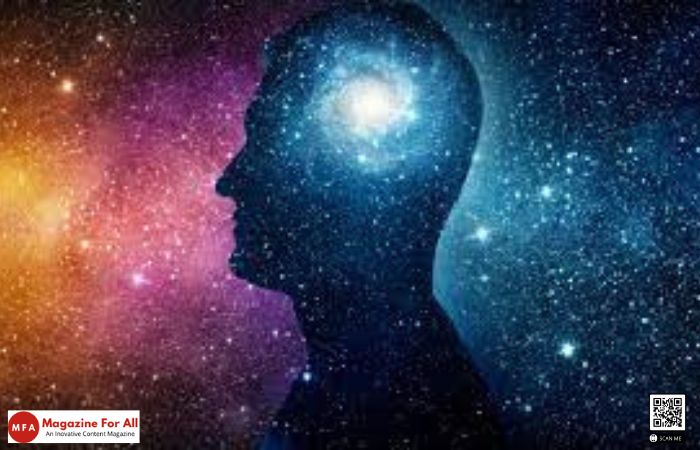Table of Contents
Biocentrism debunked
Biocentrism’s principle is simple: all living things are equally valuable and must be treated with respect and moral integrity. Let’s examine the question from every angle: has Biocentrism debunked?
Many people consider Biocentrism to be a non-so-new but far superior worldview. Many people are unable to grasp it. Over the years, the world has developed arguments in favor and against bio centrism ethics. While scientific and philosophical examination has revealed flaws and a lack of empirical evidence for Biocentrism, has it been proven false?
Make clear the meaning of “biocentrism.”
Biocentrism is the term used to describe the theory that posits that consciousness is the primary force driving the universe and the other phenomena that result from it. Bio is the term used to describe life, and the word “center” denotes an essential part or element; hence, Bio centrism argues that life can be described as the primary component of the universe.
In his article in the journal titled “Biocentrism debunked: How Life and biocentrism Consciousness Are the Keys to Understanding the True Nature of the Universe,” Robert Lanza introduced the term “bio centrism” for the first time. The article was an opportunity to challenge long-standing scientific and philosophical principles.
The unconscious and life form the core of the universe. The matter is considered to be secondary by this view. Many arguments were offered to support and show this bio-centred theory’s credibility. However, many people opposed it and presented counterarguments.
The Biocentrism debunked And Death Concept
The hypothesis, translated as “life center” in Greek, is comprehensive. This revolutionary theory could affect AI, biology, physics, consciousness, and the brain. Take a single strand of grass. When you see it in a verdant way, your brain interprets it as green. What would a neuroscientist see in the part of the brain responsible for understanding the idea and changing the color to red or yellow?
Our brain interprets every aspect of reality as sensory input, in the words of Lanza. The way we perceive existence is based on our sense of awareness. The physical dimension of space-time is different from our daily perception of it. The scientific community is committed to the idea of continuity in space-time. Lanza describes them as “simple mental instruments.” In his view, death “cannot exist in any real sense.”
Supporting Arguments
Biocentrism supporters highlight the following arguments:
Consciousness as Its Core: Consciousness, a concept that has been difficult to define within traditional physical theories, has been explained by biocentricism. Bio-centrism confirms our self-awareness by placing consciousness in the middle of the conceptual basis.
It is believed that the theory of being emphasizes the role of perception in creating the universe we live in. Understanding the complex conditions in our cosmic universe that seem perfect for living is achievable only if one recognizes the essential nature of consciousness and existence.
Is Biocentrism debunked?
Although Biocentrism could appeal to a large public, it is based on misunderstandings of scientific theories and claims unsubstantiated by empirical evidence. Evidence from the theory and evidence suggests that the universe doesn’t originate from consciousness and life; however, it is an independent entity of the two. Even though Biocentrism has been unable to prove its claims, which is a crucial component of theories in science, it has yet to be refuted thoroughly. But there is enough evidence to suggest it’s unlikely.
Biocentrism’s argument is based on a fundamental misconception about the observer’s effect. Quantum mechanics is a science where observer effects do not require a conscious observer. The term is used to describe any interaction with quantum particles or their environment, such as those involved in the unconscious of measurement devices. The universe was in its present state throughout billions of years before consciousness.
By evidence from the empirical like radioactive cosmic background, theories of physics and cosmology prove that it is unnecessary to believe that the universe isn’t dependent on observations. Another law in thermodynamics, which is that entropy, known as a disorder, inevitably grows with time within an isolated system, is usually ignored by Biocentrism debunked. This fundamental law is the foundation of “the arrow” of time and has been repeatedly proven.
Biocentrism versus Anthropocentrism
Biocentrism is portrayed as a diametrically opposite ethics of anthropocentrism centered around humans. According to the anthropocentric view, humans are seen as unique and superior to all animals and plants. This is a way of allowing the use of nature for human gain.
Anthropocentricity has been accused of focusing solely on humans of the present without regard to future generations. The unsustainable utilization of finite resources like petroleum is a prime illustration.
By the modern anthropocentrism philosophy, humans have an obligation to the natural environment. However, this is not because of its intrinsic value, but rather due to the adverse effects that pollution could have on other animals.
Conclusion
Biocentrism is a way of ensuring the rights and dignity of every living thing. While it has been praised for its environmental and ethical consequences, it has received criticism. Many critics say that Bio centrism is unjust and contradictory to human needs. According to its advocates, Biocentrism protects ecosystems, and biodiversity and addresses environmental concerns ethically and morally.
































































